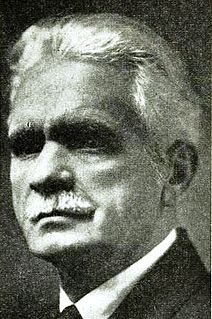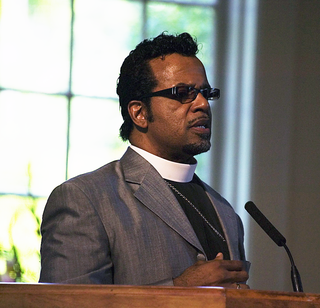A Quote by Eusebius
[Christ's] character is twofold: like the head of the body in that he is regarded as God and yet comparable to the feet in that he put on humanity for the sake of our salvation, a man of passions like ours.
Related Quotes
There is One God and One Mediator between God and man, the man Jesus Christ (cf. I Tim. 2:5). For He still pleads even now as man for my salvation; for He continues to wear the Body which He assumed, until He make me a god by the power of His Incarnation; although He is no longer known after the flesh (cf. II Cor. 5:16) ? I mean, the passions of the flesh, the same, except sin, as ours.
Tremble with awe, O men! The insults God suffered for the sake of our salvation you too must endure! God is slapped on the face by the basest of slaves (Jn. 18:22). He gives you an example of victory, yet do you refuse to undergo this at the hands of a man of like passions as yourself? You are ashamed of becoming an imitator of God (Eph. 5:1), how then will you reign with Him and share in His glory in the kingdom of heaven if you do not endure that man?
First, we believe that God is a being with a body in form like man's; that he possesses body, parts and passions; that in a word, God is an exalted, perfected man. Secondly, we believe in a plurality of Gods. Third, we believe that somewhere and some time in the ages to come, through development, through enlargement, through purification until perfection is attained, man at last may become like God - a God.
Christ used the flesh and blood of Mary for his life on earth, the Word of love was uttered in her heartbeat. Christ used his own body to utter his love on earth; his perfectly real body, with bone and sinew and blood and tears; Christ uses our bodies to express his love on earth, our humanity. A Christian life is a sacramental life, it is not a life lived only in the mind, only by the soul... Our humanity is the substance of the sacramental life of Christ in us, like the wheat for the host, like the grape for the chalice.
If the divine Logos of God the Father became son of man and man so that He might make men gods and the sons of God, let us believe that we shall reach the realm where Christ Himself now is; for He is the head of the whole body (cf. Col. 1:18), and endued with our humanity has gone to the Father as forerunner on our behalf. God will stand 'in the midst of the congregation of gods' (Ps. 82:1 LXX) - that is, of those who are saved - distributing the rewards of that realm's blessedness to those found worthy to receive them, not separated from them by any space.
It is God's earth out of which man is taken. From it he has his body. His body belongs to his essential being. Man's body is not his prison, his shell his exterior, but man himself. Man does not "have" a body; he does not "have" a soul; rather he "is" body and soul. Man in the beginning is really his body. He is one. He is his body, as Christ is completely his body, as the Church is the body of Christ
The death of Christ made it possible for God to accept sinful man, and that he has, in fact, done so. Consequently, whatever separation there is between man and the benefits of God's grace is subjective in nature and exists only in man's mind and unregenerate spirit. The message man needs to hear then, is not that he simply has a suggested opportunity for salvation, but that through Christ he has, in fact, already been redeemed to God and that he may enjoy the blessing that are already his through Christ
Becoming mature Christians will require the sovereign work of God. Only God can save and sanctify. Still, God uses men and means. Certainly we as parents must seek to bring our children to Jesus Christ for salvation. But salvation is not the end of the journey. It is only the beginning. The destination toward which we are headed with our children is nothing less than maturity in Christ.
By His gracious condescension God became man and is called man for the sake of man and by exchanging His condition for ours revealed the power that elevates man to God through his love for God and brings God down to man because of His love for man. By this blessed inversion, man is made God by divinization and God is made man by hominization. For the Word of God and God wills always and in all things to accomplish the mystery of His embodiment.
Feuerbach ... recognizes ... "even love, in itself the truest, most inward sentiment, becomes an obscure, illusory one through religiousness, since religious love loves man only for God's sake, therefore loves man only apparently, but in truth God only." Is this different with moral love? Does it love the man, this man for this man's sake, or for morality's sake, for Man's sake, and so-for homo homini Deus-for God's sake?
The love shown in Christ by our God to mankind should constrain all of us who are followers and disciples of Christ to do all in our power to see to it that the Message of Salvation is carried to those of our fellows for whom Christ Our Saviour was sacrificed but who have not had the benefit of hearing the good news.
So where does Stan fit in this equation?... We are told to meditate on scripture, even the hald that details the consequences of evil, the consequent of Jericho and all. Not to pretend out God has somehow changed since the time of Christ. Obviously, Paul's idea of admirable and noble is quite different from ours. God forgives us, Bill. We have mocked His victory by whitewashing the enemy for the sake of our neighbirs approval." No Greater Love has any man.
Our passions are the chief means of self-preservation; to try to destroy them is therefore as absurd as it is useless; this would be to overcome nature, to reshape God's handiwork. If God bade man annihilate the passions he has given him, God would bid him be and not be; He would contradict himself. He has never given such a foolish commandment, there is nothing like it written on the heart of man, and what God will have a man do, He does not leave to the words of another man. He speaks Himself; His words are written in the secret heart.
To be "in Christ" is to place one's trust in Him for salvation from sin. To be "in Christ" is to trust His goodness, not our own; to trust that His sacrificial death on the cross paid the complete debt of death we owe for our sin; to trust that His resurrection gives us eternal life instead of relying upon our own ability to please God. To be "in Christ" is to claim, by faith, the free gift of salvation. To be "in Christ" is to enjoy a completely restored relationship with our Father in heaven by virtue of His Son's righteous standing.







































